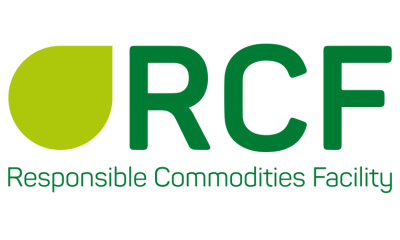Responsible Commodities Facility
The Responsible Commodities Facility (RCF) helps UK retailers deliver on their commitments to halting deforestation and natural ecosystem conversion associated with agricultural commodity production in Brazil. The facility is a financial mechanism that provides low interest credit lines to soy farmers in Brazil’s Cerrado who commit not to expand their croplands into native vegetation. The RCF was designed by environmental finance advisory firm Sustainable Investment Management, and is implemented in strategic partnership with BVRio, Opea, and Traive. AFi Coalition members Conservation International, Proforest, and The Nature Conservancy serve on the RCF’s Environmental Advisory Board.
The Accountability Framework provided the conceptual foundation for RCF’s responsible production reporting standards. Using the Framework helped RCF to develop clear, implementable eligibility criteria for farmers. For example, RCF adopted Framework definitions and material guidance. This means that to participate in the RCF programme, farmers must commit not to convert any areas of native vegetation to soy cultivation after 1 January 2020. Farmers must also comply with national legislation, and have legal land tenure, as called for in the Framework. Further, the Framework informed RCF’s due diligence structure by providing reference points for responsible sourcing and risk mitigation.
To incentivise deforestation- and conversion-free soy production, the RCF aims to provide low-cost loans to 600 farms, totalling an aggregate of over $3 billion in lending over 10 years.
The first pilot programme, which provided farmers with $11 million, was supported by UK supermarkets Tesco, Sainsbury’s, and Waitrose. In 2023, the facility scaled to $47 million with the entry of Santander, Rabobank, and AGRI3 using blended finance structure. In 2025 two new investors joined: IDB Invest and the Mobilising Finance for Forests (MFF) program, which is managed by FMO, the Dutch entrepreneurial development bank. The RCF is funded by the UK and Netherlands governments, growing the fund to $60 million.
For the 2025/26 season, the RCF provided finance to 280 farms, which it expects to produce more than 240,000 tonnes of deforestation- and conversion-free soy. This would result in the conservation of around 90,000 hectares (ha) of native vegetation, including 29,000 ha that could otherwise be legally deforested. These areas store an estimated 22 million tonnes of carbon.
“Using the Accountability Framework helped us ensure consistency between RCF’s operational reporting model and broader global expectations for deforestation-free finance. It also supported alignment and credibility with investors, allowing RCF to communicate its approach using language recognised across the sector.”
Steven Ripley
Director of Market Engagement, Responsible Commodities Facility (RCF)

